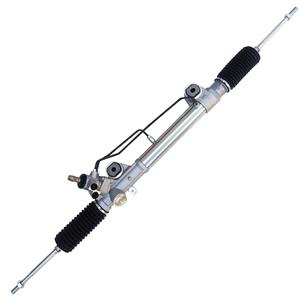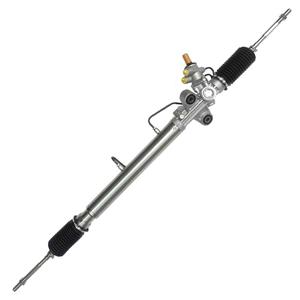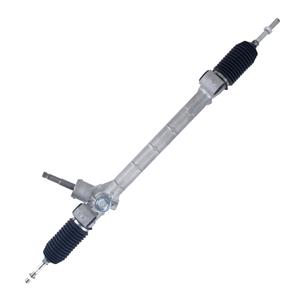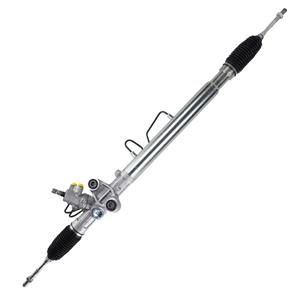Does Mercedes have electric power steering?
As modern automotive technology continues to evolve, steering systems have also undergone significant changes. From the earliest mechanical steering systems to today's widely used hydraulic power steering (HPS) and electric power steering (EPS), each technology is designed to improve vehicle handling and driving comfort. sex. As the leader in the luxury car field, Mercedes-Benz is not lagging behind in this regard.
So, does Mercedes-Benz come with electric power steering? This article will explore the development of Mercedes-Benz's steering system and answer this question in detail.
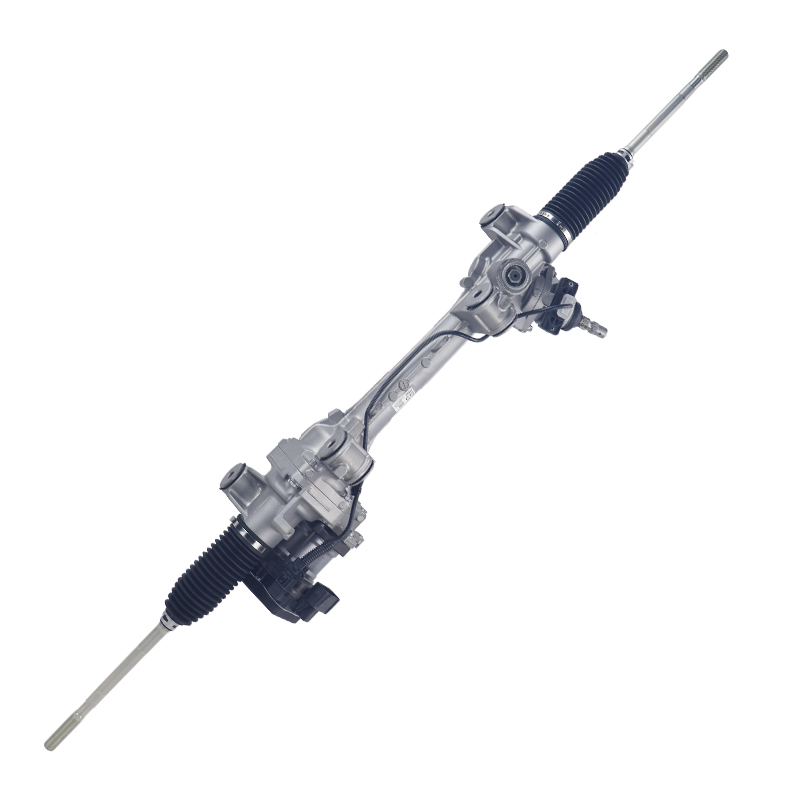
What is the principle of electric power steering?
Before discussing whether Mercedes-Benz has electric power steering, it is necessary to understand what electric power steering is. Electric Power Steering (EPS) is a system that provides assistive steering force through an electric motor. Compared with traditional hydraulic power steering, EPS assists the driver's steering operations by driving an electric motor electrically, without relying on a hydraulic pump and hydraulic oil.
Core components of electric power steering system:
● Electric motor: directly provides power to the steering system.
● Electronic control unit (ECU): Responsible for real-time monitoring of parameters such as steering wheel rotation angle and vehicle speed, and intelligently adjusting the power assist.
● Steering sensor: monitors the steering wheel's rotation speed and angle, and feeds the data back to the ECU to determine the accuracy of the power assist.
● Power supply system: Provides the required electrical energy to the motor.
How electric power steering works:
Electric power steering monitors steering wheel movement in real time via steering sensors. When the driver turns the steering wheel, the sensor transmits data to the electronic control unit (ECU). The ECU calculates the required power assistance based on vehicle speed, steering angle and other information, and then applies appropriate steering force through the electric motor. As a result, drivers can enjoy an easier and more precise steering experience at all speeds.
Electric power steering is more energy efficient than hydraulic systems because it only provides assistance when needed, whereas hydraulic systems are always running. In addition, the electric power steering system can be further optimized through software upgrades to achieve a higher level of intelligence.
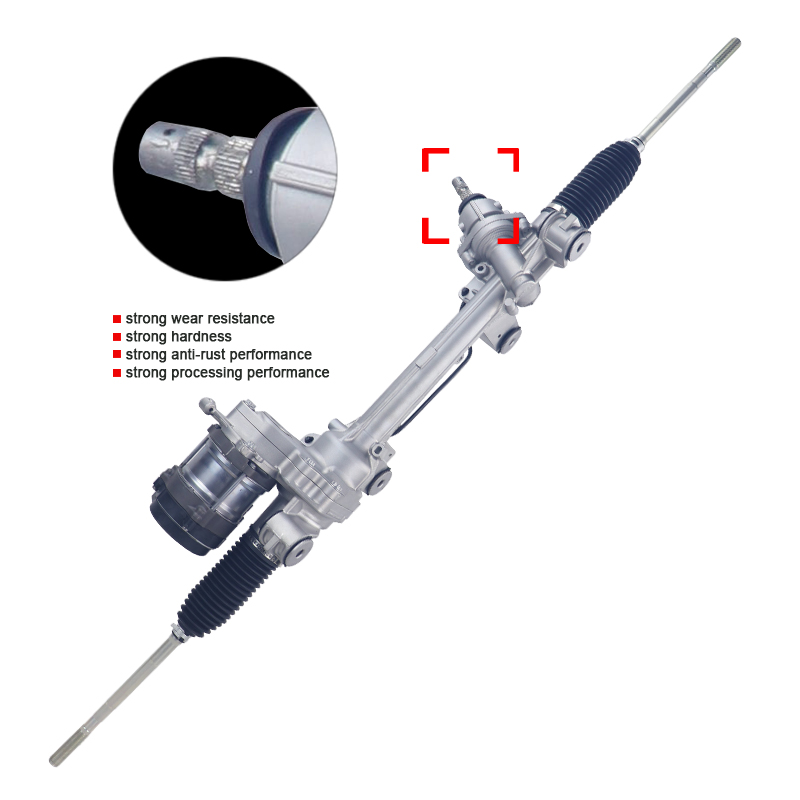
Does Mercedes-Benz use electric power steering?
As a world-renowned luxury car manufacturer, Mercedes-Benz has always been committed to applying the most advanced technology to its vehicles. In fact, Mercedes-Benz has already widely used electric power steering (EPS) in multiple models.
Mercedes-Benz electric power steering system
Mercedes-Benz offers electric power steering in many of its models. For example, Mercedes-Benz's C-Class, E-Class and S-Class models have all adopted electric power steering technology. The introduction of this technology not only improves steering accuracy and response speed, but also greatly improves driving comfort and safety.
In Mercedes-Benz's electric power steering system, the electronic control unit can adjust the steering power in real time according to different driving conditions (such as vehicle speed, road conditions, etc.). For example, when driving at low speeds or parking, the system will increase steering assistance to make the steering wheel easier. When driving at high speeds, the system will reduce power assist to enhance steering wheel stability and road feel feedback, thereby improving driving safety.
Advantages of Mercedes-Benz electric power steering
The reason why Mercedes-Benz widely uses electric power steering is mainly because this system has obvious advantages in many aspects:
● Energy saving and environmental protection: Compared with traditional hydraulic power steering systems, electric power steering does not need to rely on a hydraulic pump, thus reducing the load on the engine and improving fuel efficiency.
● Intelligent control: The electric power steering system can intelligently adjust the power assist according to driving conditions, providing a more personalized driving experience.
● Reduced maintenance costs: Since there is no use of consumables such as hydraulic oil, the electric power steering system has lower maintenance requirements, reducing maintenance costs for car owners.
● Faster response: The electric power steering system has a fast response speed and can quickly provide precise power feedback according to the driver's operation, improving steering accuracy.
Application models of Mercedes-Benz electric power steering
In addition to common sedan models such as the C-Class, E-Class, and S-Class, Mercedes-Benz SUV models such as GLC and GLE are also equipped with electric power steering systems. This means that whether it is a luxury sedan or an off-road model, Mercedes-Benz has fully popularized this technology.
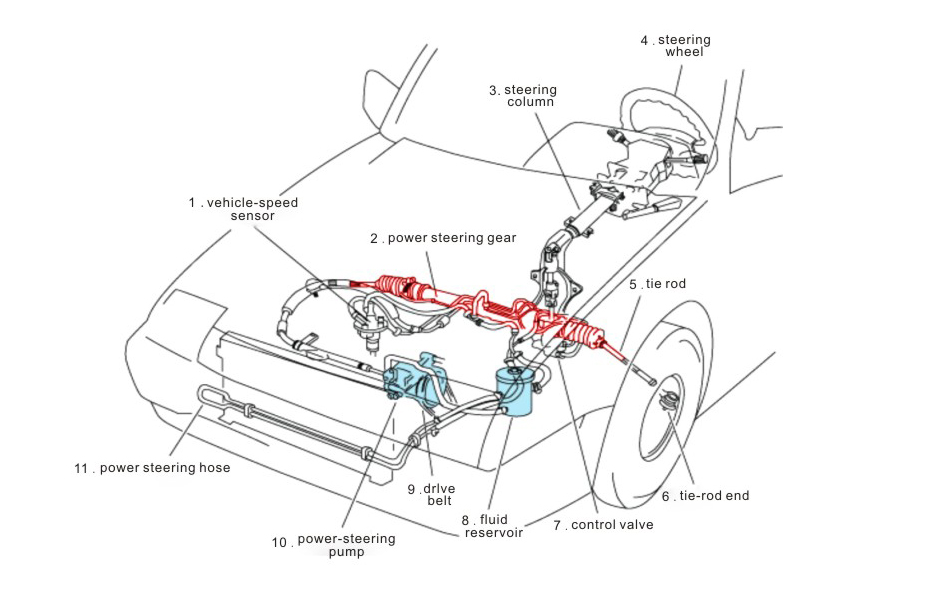
Hydraulic power steering vs electric power steering in Mercedes-Benz models: Which one is better?
Although electric power steering (EPS) is becoming more and more widely used in Mercedes-Benz models, hydraulic power steering (HPS) still exists on some models. So, what are the practical differences between these two systems?
Features of hydraulic power steering
The hydraulic power steering system uses a hydraulic pump and hydraulic oil to provide steering assistance and has a large steering force, especially on heavy vehicles or models that require greater power assistance. However, the hydraulic power-assist system is always running, and the hydraulic pump is working even when power assistance is not needed, which results in higher energy consumption.
Features of electric power steering
The electric power steering system provides assistance through an electric motor and can adjust the amount of assistance according to actual needs. It has better energy efficiency because it only turns on when needed. And, because no hydraulic oil is used, maintenance costs for electric systems are relatively low. In addition, the EPS system can further optimize its performance through software upgrades and has high scalability.
The difference in driving experience
Hydraulic power steering systems usually give drivers a calmer driving experience. Especially when driving at high speeds, the steering wheel responds more heavily, which enhances driving stability. The electric power steering system is more flexible and can automatically adjust the power assist according to vehicle speed and other conditions, providing a lighter steering experience.
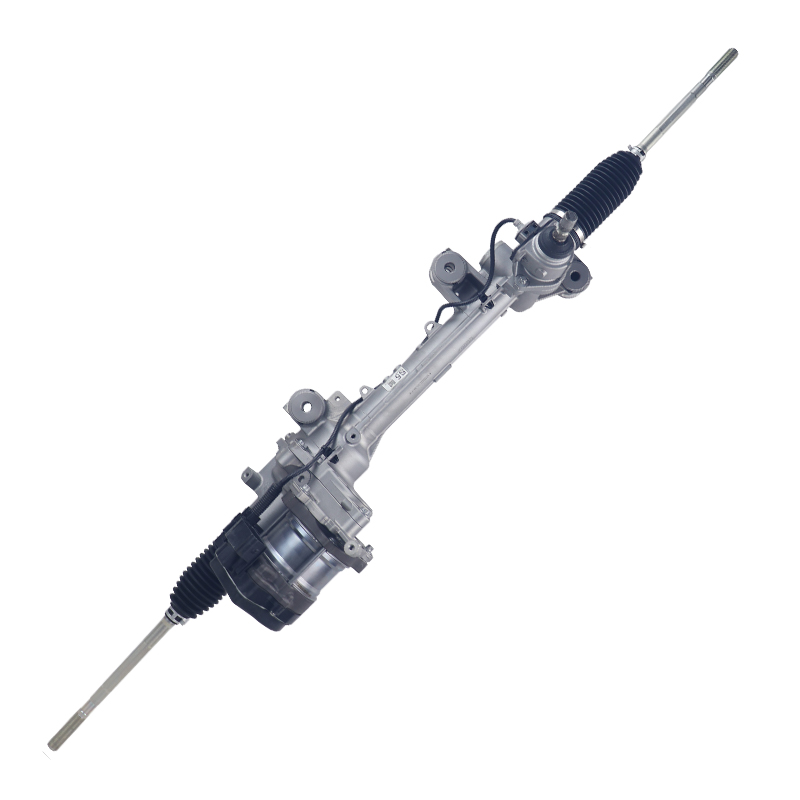
How to tell whether a Mercedes-Benz model is equipped with electric power steering?
If a car owner or driver wants to confirm whether his Mercedes-Benz model is equipped with an electric power steering system, he can use the following methods to determine:
Vehicle manual
The owner's manual of a Mercedes-Benz vehicle usually lists the vehicle's various configurations and functions in detail. In the steering section of the manual, look to see if it says "Electric Power Steering" or "EPS." If so, then the vehicle is equipped with electric power steering.
Vehicle configuration table
Car owners can also confirm by consulting the vehicle's configuration table. If similar terms such as "electric power steering" or "intelligent steering system" are listed in the configuration table, then the vehicle is likely to use electric power steering.
Actual driving experience
Electric power steering typically steers very lightly at low speeds and becomes firm at high speeds. If the steering wheel's power assistance changes significantly with vehicle speed while driving, the vehicle is likely equipped with electric power steering.

